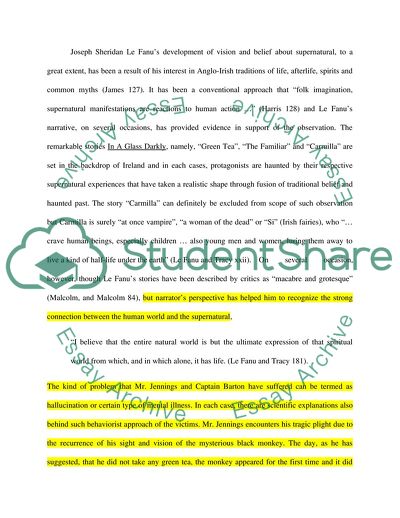Cite this document
(Supernatural Stories: Joseph Sheridan Le Fanu and Henry James Case Study, n.d.)
Supernatural Stories: Joseph Sheridan Le Fanu and Henry James Case Study. Retrieved from https://studentshare.org/literature/1734277-writing-the-supernatural
Supernatural Stories: Joseph Sheridan Le Fanu and Henry James Case Study. Retrieved from https://studentshare.org/literature/1734277-writing-the-supernatural
(Supernatural Stories: Joseph Sheridan Le Fanu and Henry James Case Study)
Supernatural Stories: Joseph Sheridan Le Fanu and Henry James Case Study. https://studentshare.org/literature/1734277-writing-the-supernatural.
Supernatural Stories: Joseph Sheridan Le Fanu and Henry James Case Study. https://studentshare.org/literature/1734277-writing-the-supernatural.
“Supernatural Stories: Joseph Sheridan Le Fanu and Henry James Case Study”. https://studentshare.org/literature/1734277-writing-the-supernatural.


